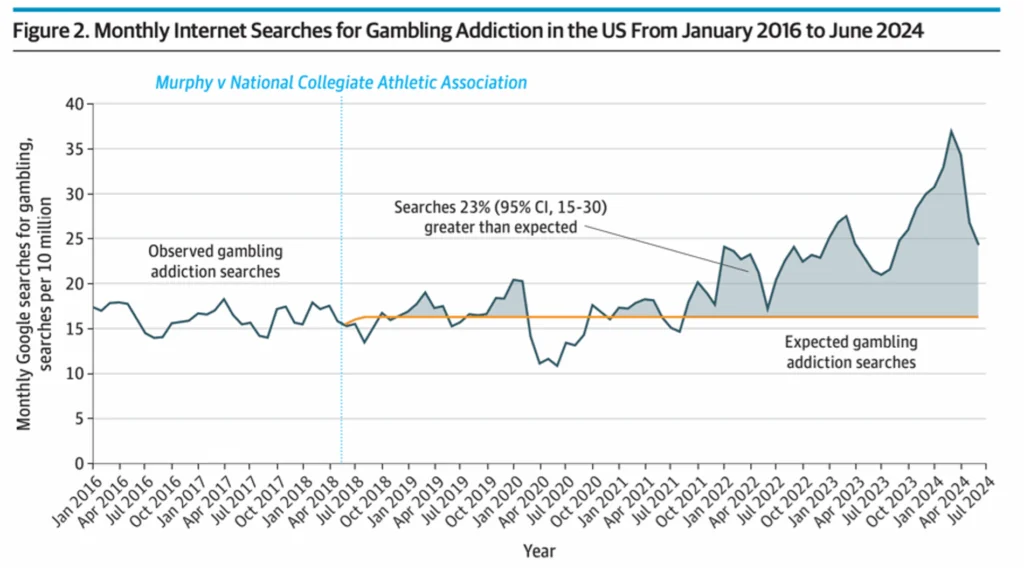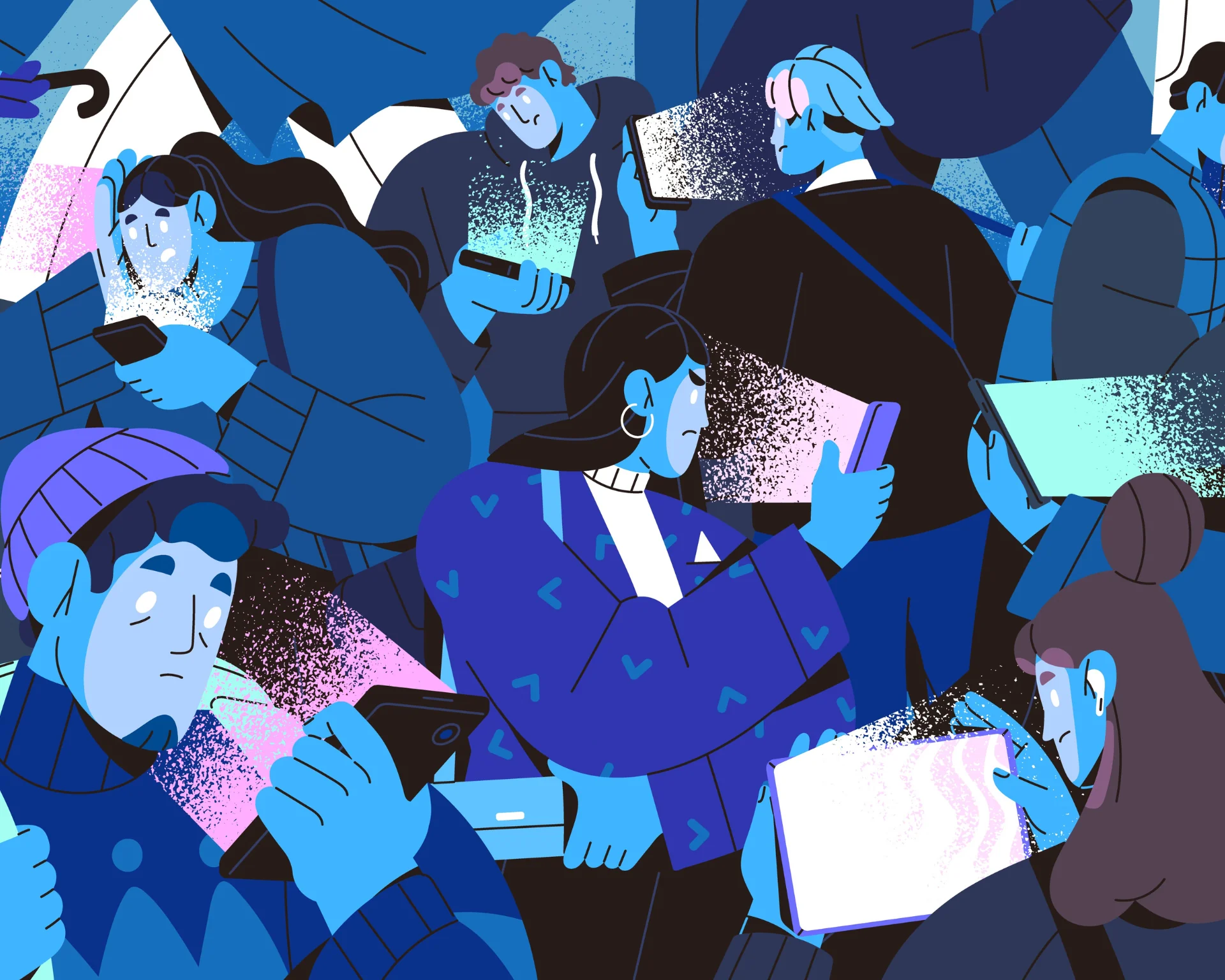Sportsbooks: Gambling the Odds, Or Your Health?
Since the federal ban on sports betting ended in 2018, the industry has surged. But so have online searches for gambling addiction help.

Read Time: 2 minutes
Published:
From March Madness brackets to Super Bowl wagers, sports betting has captivated public attention. In 2018, the Supreme Court decision Murphy v. National Collegiate Athletic Association (NCAA) granted states the authority to legalize sports betting, revoking the federal ban. The ruling spurred the growth of sportsbooks—privately owned platforms that take bets on collegiate and professional sports. In 2024, they generated a record revenue of $13.7 billion across 38 states.
Legal sports betting can be a slippery slope to gambling disorder, an addiction marked by repeated, uncontrollable betting despite harm to personal connections or financial stability. Men and young adults gamble at nearly twice the rate of women and older adults. Those under 25 are especially vulnerable due to ongoing brain development in areas that control impulsivity and decision-making, leading to riskier behaviors.
Gambling disorder also frequently accompanies psychiatric conditions: research shows more than half of problem gamblers also suffer from mental health or substance use disorders, particularly alcoholism.
To better understand the public health impact of legalized sports gambling, Atharva Yeola and associates investigated changes in betting and online searches for addiction after Murphy v. NCAA. Using Google Trends, they analyzed sports wagers and searches for gambling addiction between 2016 and 2024.

The researchers used queries combining “gambling” with “addiction,” “addict,” “anonymous,” or “hotline” to identify help-seeking behaviors. Gambling addiction searches started rising in May 2018, after the court decision. Though searches declined when COVID-19 began, they surged after 2021, when 32 states had legalized sports betting.
Nationally, sports wagers grew from $4.9 billion in 2017 to $121.1 billion in 2023. Searches for gambling addiction totaled 6.5-7.3 million nationwide—about 23% higher than expected based on pre-sportsbook trends, seen in orange on the graph above. Searches also increased in states after they legalized sportsbooks, including Illinois, Massachusetts, Michigan, and New York.
The authors emphasize how betting regulations prioritize revenue and industry growth, often overlooking health concerns. The rise in help-seeking behaviors after legalization underscores the need to strengthen regulatory safeguards and investigate the harms of modern sportsbooks.
The researchers recommend that states collaborate with health agencies to ensure private companies assess the potential health risks of their sportsbooks before expanding. They also urge states to increase funding for addiction services, which only receive small shares of gambling revenue.
To protect public health, sportsbooks should prioritize prevention over profit-driven advertising. Responsible gambling goes beyond just personal choice; it requires ensuring health and safety for everyone.



